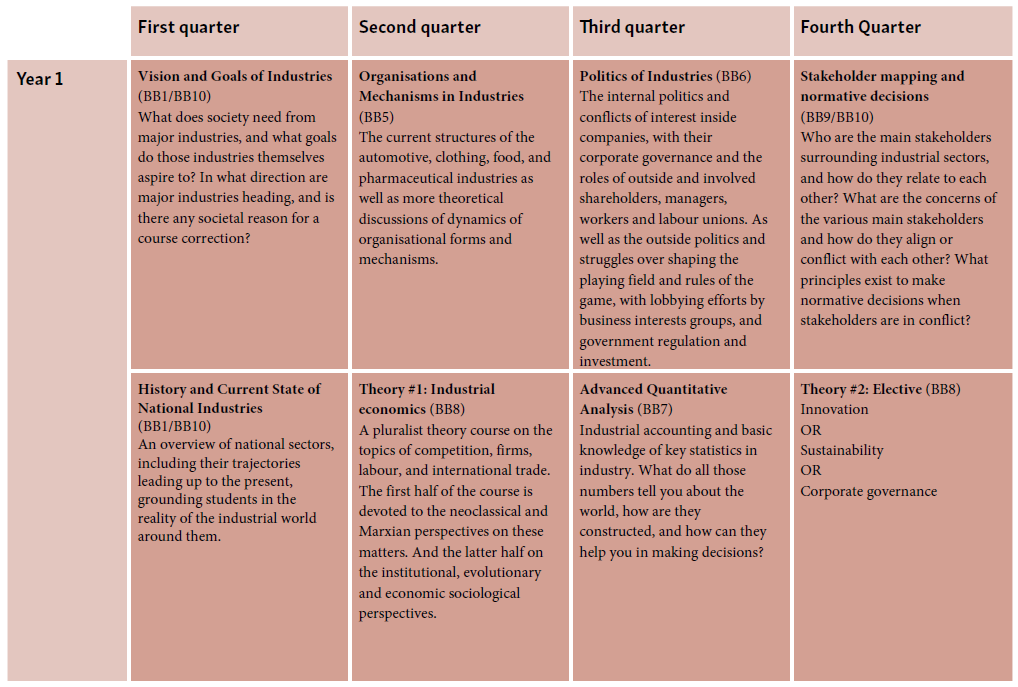Programme slogan: The economics of production, competition and innovation
Example Curricula
This chapter provides examples of how economics programmes could look and be structured. Such proposals help make the debate concrete and bring out potential trade-offs. This is important because critics of current programmes often simply ask to teach more and more, without considering practical limits on time and content. Curriculum proposals help us to flesh out not only what could be added to a programme, but also what could be left out. In addition, these examples show how the building blocks of Economy Studies can be combined to form coherent programmes.
This chapter is also intended to make clear once again: Economy Studies is not a blueprint of a single, ‘ideal’ curriculum. It is possible to design a wide variety of programmes with these building blocks, and it is our hope that they will be used for this. We firmly believe that the world is best served with a wide variety of economists. One size does not fit all.
Example Curricula:
- Bachelor in Economics with a Theoretical Focus
- Bachelor in Economics with a Real-World Focus
- Major Economics in a Liberal Arts and Sciences Programme
- Master in Public Economics
- Design Your Own Curriculum, Step by Step
- Master in Financial Economics
- Master in Economics of Climate Crises
- Research Master in Industrial Economics
Example Curriculum 8: Research Master in Industrial Economics
This master’s programme prepares students for a research position in the field of industrial policy, now once again emerging as a major concern for countries around the globe. Graduates from this programme would gain the necessary skills to pursue a PhD. Alternatively, they might continue to work for a ministry of economic affairs, a large industrial firm or a consultancy company, or for an NGO trying to redirect the course of a sector that has become too destructive for society.
The first semester starts with an introduction to the industrial structure of the national economy, alongside a more philosophical course on the main aims, goals, values and other normative considerations surrounding the key industries of that country. It continues with more theoretical courses on the structure of companies, the ways that they interact and the larger sectors that they form. In the second semester, we turn to the politics of industry, and the various forms of struggle that determine how industries are shaped. We also lay the foundation for more advanced forms of quantitative analysis later on in the programme.
In the first semester of the second year, students choose one of the following four industrial sectors: automotive, clothing, food, or pharmaceuticals. For their chosen sector, they go through the following steps. First, they conduct a broad-based sectoral analysis, including stakeholder-mapping. They then choose a question on which to focus their thesis. In this thesis, they conduct a theoretical and empirical analysis of the issue, as well as creating an overview of the various related normative concerns. Building on this problem analysis, they explore how future scenarios might look and what actions could be taken to change, avoid or achieve them. The end result is a research report which includes advice for relevant stakeholders such as government agencies, private companies, labour unions and/or civil society organisations.
Programme overview

